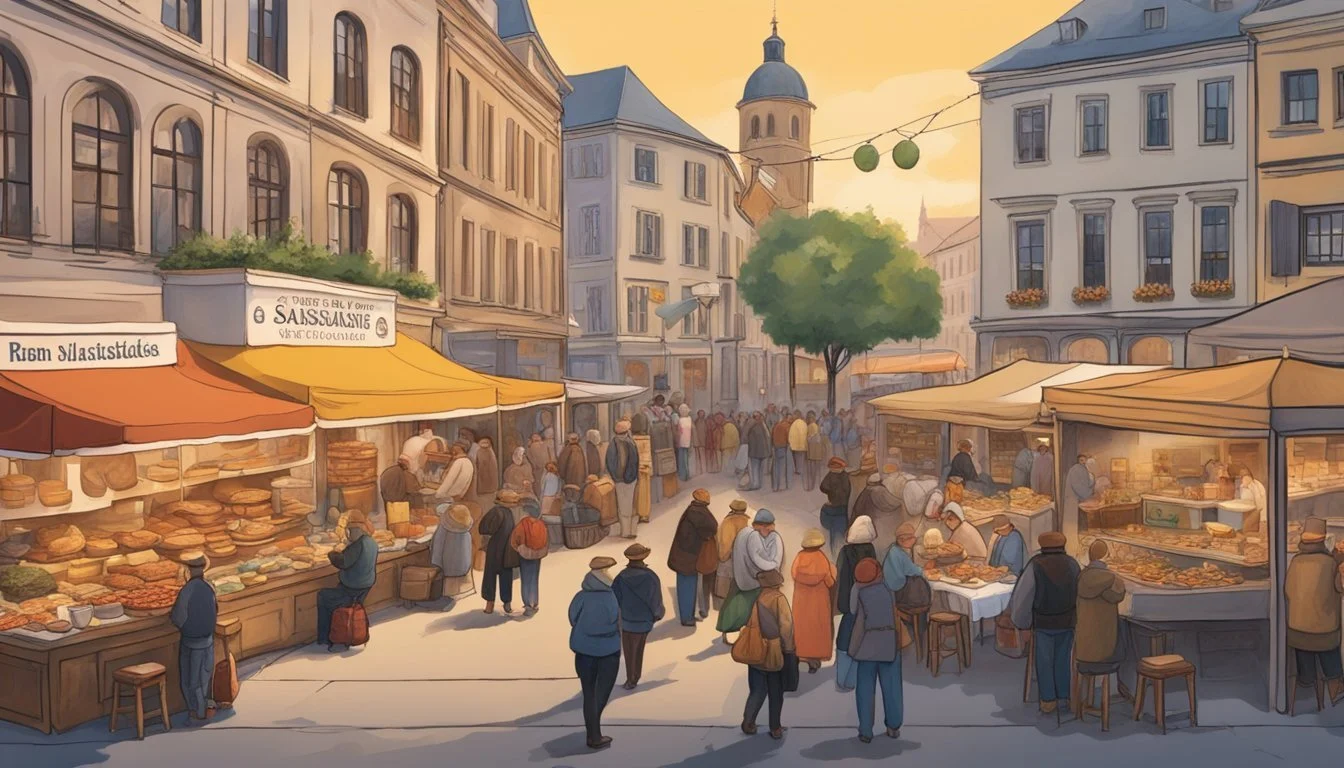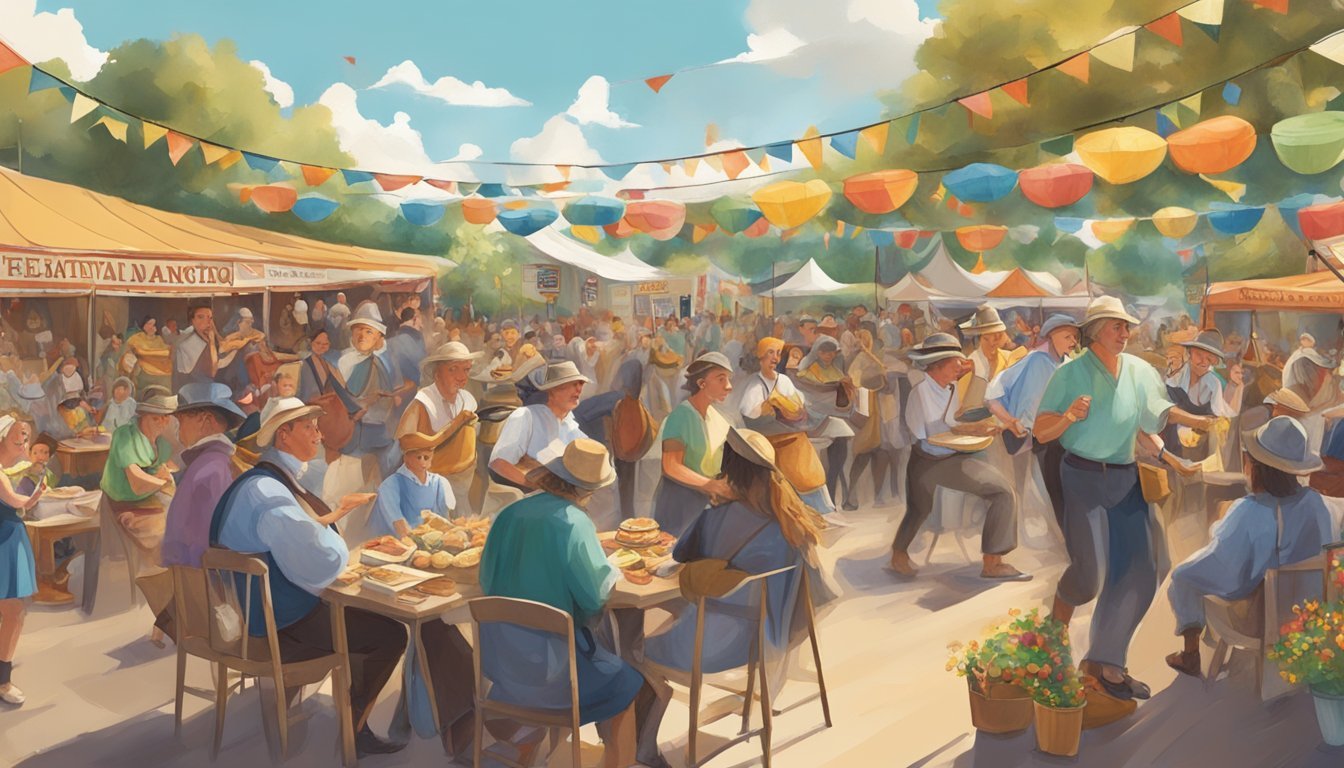German Texan Food and Literature Events
A Fusion of Cultures Schedule
German Texan heritage is a vibrant tapestry interwoven with the rich threads of cultural traditions, notably in the spheres of culinary arts and literature. The community's German roots have significantly flavored not just the social milieu of Texas but also its palate. Festivals such as Wurstfest in New Braunfels, which attract over 100,000 visitors, celebrate this fusion by showcasing German culinary staples like sausage and beer, alongside long-standing German traditions. These events serve as a testament to the profound influence German settlers have had on Texan culture, revealing how food can act as both a historical narrator and a medium for communal engagement.
In addition to culinary events, the German Texan community has found a way to strengthen and share its heritage through literature. Initiatives like GTHS Reads provide a platform for individuals to connect over a shared interest in German-Texan heritage and the German language, leveraging technology to host virtual meetings that reach participants beyond geographic confines. These gatherings, along with offerings from the German Texan Heritage Society such as language classes and cultural events, foster a deeper understanding of and appreciation for the narratives that have shaped the identity of German Texans.
Literature and food are but two examples of how German cultural heritage thrives within the Texan tapestry, with each event fostering an educational environment where participants can immerse themselves in Germany's cultural legacy. It is in these spaces that the spirit of German Texan heritage is both preserved and celebrated—a testament to Texas's rich, multicultural history and the enduring bonds between these two distinctive cultures.
Historical Overview
The historical narrative of German influence on Texan culture is an essential fabric of Texas's diverse heritage, with its roots in early immigration patterns and the settlement of German communities throughout the state. These settlers have left an indelible mark on Texas, which is celebrated through various events and organizations, such as the German-Texan Heritage Society.
German Immigration to Texas
German migrants began arriving in Texas during the 1830s, in search of opportunities and freedom. The first significant wave was part of the Adelsverein, also known as the Society for the Protection of German Immigrants in Texas, which aimed to establish a new Germany within the borders of Texas. This movement was partly a response to social and political pressures in Germany and partly due to the appeal of Texas as a land where immigrants could potentially thrive.
Settlement Patterns and Influence
These immigrants settled primarily in Central Texas, known as the Texas Hill Country, establishing towns such as New Braunfels, Fredericksburg, and Boerne. Additionally, larger cities like San Antonio and Austin saw a significant increase in their German Texan populations. These settlers contributed to the agricultural development of the region and introduced new cultural elements, including their language—Texas German—which remains a subject of linguistic interest.
Early Settlements in Texas Hill Country:
New Braunfels (established 1845)
Fredericksburg (established 1846)
Boerne (established 1852)
The influence of German culture is evident in the architecture, culinary traditions, and festivities still prominent in these areas today.
German-Texan Heritage Society
The German-Texan Heritage Society (GTHS) serves as a key institution for preserving the history and promoting the culture of German ancestry in Texas. It operates out of a historic building in Austin and is actively involved with the Texas Historical Commission to maintain the visibility and understanding of this group's contributions to Texan history. The Society frequently organizes cultural events, offers educational resources, and supports research endeavors related to German Texan heritage.
By providing these resources and fostering community engagement, the German-Texan Heritage Society ensures that the legacy of Texas's German settlers continues to be recognized and celebrated.
Cultural Festivities and Traditions
German-Texan communities uphold their rich heritage through a variety of food and literature events, infusing traditional German celebrations with a unique Texan flair. These gatherings provide a colorful display of festivities that pay homage to their roots, featuring authentic cuisine, music, and literary contributions.
Oktoberfest Celebrations
Oktoberfest, a longstanding German tradition, is enthusiastically celebrated across Texas with an abundance of beer and live music. In towns like Fredericksburg, these festivals attract large crowds, eager to experience the blend of German-Texan culture. Event-goers revel in a variety of activities that include:
Tapping of the Keg: A ceremonial start to festivities.
German Music and Dance: Polka bands and folk dancing reflect vibrant traditions.
Beer Tents: Serving a variety of traditional German brews.
Culinary Delights: Featuring bratwurst, pretzels, and other German fare.
Maifest and Christmas Markets
Maifest hails the arrival of spring with German folk music, traditional costumes, and a spirited celebration of German heritage. Similarly, Christmas markets (Weihnachtsmarkts) in places like San Antonio and New Braunfels light up the holiday season, offering:
Artisan Goods: Handcrafted items perfect for holiday gifting.
Festive Treats: Gingerbread, mulled wine, and roasted nuts.
Seasonal Music: Choirs and bands perform classic German and holiday songs.
Annual Events by GTHS
The German-Texan Heritage Society (GTHS) plays a pivotal role in preserving and promoting German heritage through their annual events. These include:
Annual Conference: A gathering for cultural exchange, education, and celebration of German-Texan history.
Cultural Workshops: Sessions focusing on traditional crafts and German language.
Literary Events: Showcasing German-Texan literature with readings and discussions.
By maintaining these cultural practices, German-Texans continue to honor their ancestry while enriching the cultural tapestry of Texas.




